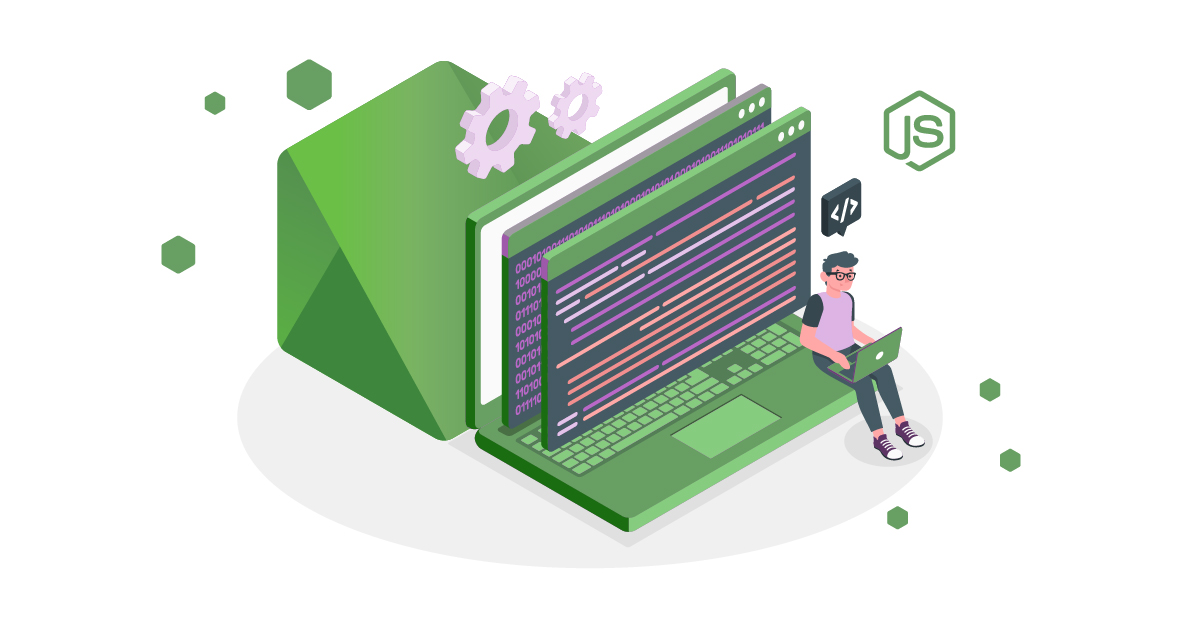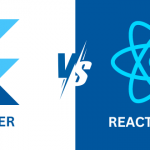It’s 2022, and we must brace ourselves to witness more feature-rich and extensive web applications in the upcoming time. While we can’t deny the fact that web application development will be more extensive than before, it’s also crucial to understand that Node.js will be a part of the majority of the web application development process.
As per W3Techs.com, Node.js is the most commonly used back-end development framework for high-traffic websites in 2022. Twitter, Upwork, Medium, Spotify, and many more web applications, are loved and praised by millions of internet users and are built by Node.js.
Seeing all this, we must admit that this open-source JavaScript-based framework is certainly making high waves. If you’re looking for an ideal technology stack for the back-end development of your futuristic web application, we strongly recommend Node.js. Wait! We have reasons and proof to back this recommendation: why use Node.js for backend in 2022.
Strengths Of Node.js
As a product owner, if you’re wondering why use Node.js for backend, then this content will provide you with valid reasons. We won’t suggest you take a bold decision of selecting a vital back-end technology stack just because someone is telling you to do so.
We present you with a crisp overview of the key strengths of Node.js that makes it stand out from the crowd. Pay attention to these and decide on your own.
-
Super-sonic development speed
Node.js can help you complete the development process at a blazing speed. All thanks go to its V8 engine, designed and developed by Google. The engine is amazing and will convert complex JavaScript codes into native code in the blink of an eye.
There is hardly any downtime or latency to experience. This way, one saves a huge deal of total time consumed on overall development time.
Not only the development time is reduced, but processing time is also better than before as Node.js is known to develop apps that can handle many connections at a time with ease. Its speed, in every sense, is hard to match.
-
Huge cost savings are on your way
Who doesn’t like saving some bucks on the development process? Well, if you’re on a tight budget yet don’t want to compromise on the quality of the application, go with Node.js. It’s an open-source tool. So, no investments are required. Also, it features a smaller memory footprint compared to its counterparts like Java and PHP.
The Node.js servers are functional because of the help of an event-driven loop. Such servers don’t demand much RAM and other software resources. Hence, your investments shrink a little bit more.
-
It supports real-time development
While you bring Node.js into action for back-end development, you’ve got a chance to conduct development in real-time as there is a lot of event programming and interaction happening in association with non-blocking sever. Whenever and wherever developers need to develop code in real-time Node.js will make it happen with the help of the automatic creation of a dynamic site.
-
Amazing caching facility
Node.js comes with a preliminary caching option that helps a developer eliminate the need for code re-execute each time the server calls for the first module. Websites are bound to be faster than before, contributing heavily to a better user experience with caching.
-
Easy and effective scalability
It’s hard to survive with some sort of application for longer. Scalability is a necessity these days. Gladly, application scalability isn’t an issue with Node.js. The V8 engine used is capable of doing any level of scalability without any hassle. Features can be added or deleted seamlessly.
-
Easy learning curve
Node.js is very easy-to-learn. Even a budding developer can use it like a pro after a little bit of hard work. It makes it a readily available development learning resource at a cost-effective price.
-
Huge community support
Node.js has become very famous and has huge community support. Developers from across the world are using this to create work-of-art applications. Platforms like GitHub has a huge database of Node.js developers involved actively in issue resolving and troubleshooting. So, if you have any troubles, thousands of hands are there to help you.
When to Use Node.js for Backend Development?
We understand that the strengths mentioned above of Node.js are enough to lure, and you must be excited to use it ASAP if you haven’t done until now. But, before you move ahead, you must understand the best-possible and maximum result-oriented use cases of Node.js.

As per the experts in the development industry, one reaps the highest-possible benefits from Node.js when it is used for:
-
IoT application development
An effective IoT application development demands a strong digital mechanism that can make the quick and seamless information exchange without any human interaction. When any other framework other than Node.js is used, the information exchange has been accounted for late or erroneous delivery.
Also, as the processing requests generated are of high frequency, many standard back-end frameworks fail to handle such extensive requests.
Node.js, due to its high-speeding V8 engine and updated algorithm, can process lengthy and various requests effectively. Also, its servers can store huge traffic and requests created by IoT devices. So, you don’t have a storage issue.
Wait! There is more to add.
Not many of us know this, but Node.js can integrate easily with single-board controllers. This functionality is IoT-development supportive as it’s easy to create IoT ecosystem-supportive digital devices.
-
Real-time application development
If you need to develop an app that will interact with the user in real-time, then nothing can beat the utility of Node.js. We have already seen the real-time interaction that Twitter offers. The app is built using Node.js. Twitter and many other collaboration tools are suitable use-cases of Node.js as it features a very friendly structure and uses impactful communication protocol.
The framework is swift enough to process the communication flow in real-time. Applications like Instagram and Twitter face huge traffic, and Node.js can handle all of it without a glitch.
-
Single page application development
Single-page applications are very popular these days, and Node.js is behind many. Single-page applications are bound to have dynamically changing data and must have a quick load time even if the internet speed is low. Node.js helps to fulfil these criteria as it can handle the extensive workload and asynchronous calls.
-
Applications feature microservices architecture
Node.js is a great choice to make for developing applications featuring microservices architecture. Such architecture is used extensively to build complex and large enterprise applications. Node. Js-based frameworks like Koa.js and Express.js are very helpful for the development of applications featuring microservices architecture.
Key Takeaway
I hope your purpose of why use Node.js for backend is served. Node.js is great and at the backstage of many impressive and user-friendly single-page, IoT, and real-time communication applications. You can consider it as an “All-gain, no-pain” framework. The only thing that one needs for perfect back-end development and productive use of Node.js is a skilled Node.js developer. Hire Node.js developer from C-Metric, and nothing can stop you from developing praise-worthy web applications.
FAQs
1. What do you mean byjs modules?
Node.js modules are pre-built codes and libraries that developers can use for the development.
2. Which database is best for Node.js?
Node.js can work seamlessly with all sorts of databases such as NoSQL, MongoDB, and PostgreSQL.
3. How can Node.js apps be scaled?
Node.js app can be scaled horizontally and vertically, provided with the right assistance. Always hire skilled Node.js developers for effective application scalability.















Get in Touch